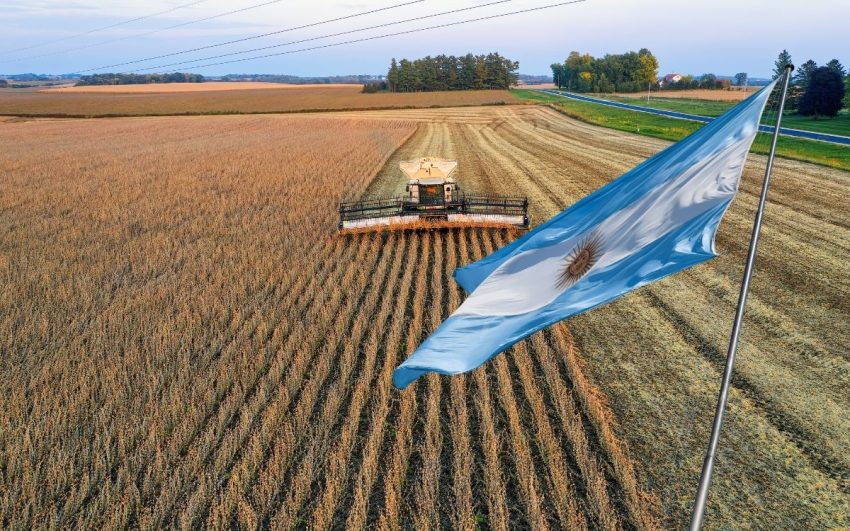The Trump administration’s decision to funnel up to $20 billion in financial aid to Argentina has sparked outrage among U.S. soybean farmers, a core part of the president’s rural base. The move, announced on September 23, 2025, by Treasury Secretary Scott Bessent, aims to stabilize Argentina’s faltering economy under President Javier Milei. Yet, it comes at a steep cost to American farmers, who are watching Argentina flood China with soybeans while U.S. exports to the world’s largest buyer have ground to a halt. This apparent betrayal, driven by Trump’s own trade war with China, has farmers questioning the logic of a policy that undercuts the very supporters who helped secure his return to the White House.
The aid package to Argentina, which includes currency swaps, bond purchases, and a stand-by credit line, is framed as a geopolitical countermove to curb China’s influence in Latin America. President Trump, who met with Milei at the UN General Assembly and endorsed his re-election, sees the deal as a way to bolster a key ally while pressuring Argentina to ditch a $5 billion currency swap with Beijing. But the timing could not be worse for U.S. soybean farmers. On September 22, Argentina suspended its 26 percent export tax on soybeans, slashing prices and triggering an immediate buying spree by Chinese importers. Within days, China snapped up 1.3 million metric tons of Argentine beans for November delivery, capitalizing on a tax-free window that runs until October 31 or until $7 billion in exports is reached. Meanwhile, U.S. farmers, burdened by China’s 34 percent retaliatory tariffs, have not sold a single bushel from their 2025 harvest to China, their top market, which bought 52 percent of U.S. soybean exports last year.
This stark contrast has farmers sounding the alarm. “Every time China turns to South America instead of the U.S., soybean farmers and our farm families here at home lose out,” said Caleb Ragland, a farmer from Magnolia, Kentucky, and president of the American Soybean Association. “Without a trade deal that removes retaliatory tariffs, farmers like me are left watching key opportunities slip away.” In North Dakota, where 70 percent of soybeans once went to China, farmers like Justin Sherlock face projected losses of $400,000 this year alone. With no domestic market to absorb the surplus, soybeans are piling up in bins, driving futures prices to a six-week low and pushing growers deeper into the red. The American Soybean Association estimates that without a trade deal by November, when U.S.-China tariff waivers expire, losses could reach $5.9 billion annually.
The irony is not lost on rural America. Trump’s tariffs, meant to pressure China into fairer trade practices, have instead handed Argentina and Brazil a golden opportunity. Brazil already dominates China’s soybean market, exporting over 80 million tons in 2025, while Argentina’s tax cut has made it a sudden darling of Chinese buyers. Rep. Julie Fedorchak of North Dakota called the situation “a bitter pill,” noting that U.S. aid to Argentina directly undermines farmers at home. “It is very unfortunate that as the U.S. is helping Argentina stabilize its economy they would undermine American farmers and weaken President Trump’s negotiations with China… This is a bitter pill for North Dakota soybean farmers to swallow.” The administration’s response, which involves floating potential farmer bailouts funded by tariff revenue, feels like a Band-Aid to many. During Trump’s first term, $28 billion in aid was paid out to offset trade war losses, but farmers like Josh Gackle, a North Dakota grower, argue it never made them whole. “Farmers, in general, would like free and fair trade and open markets where we can sell our products rather than having to rely on government payments, which is what happened back then, and it didn’t make farmers whole.”
What makes this policy seem nonsensical to farmers is the disconnect between Trump’s “America First” rhetoric and the outcomes on the ground. Rural voters, who turned out in droves for Trump in 2016, 2020, and 2024, expected protection for their livelihoods, not a deal that boosts a foreign competitor. The aid to Argentina, while geopolitically strategic, appears to prioritize foreign policy over domestic pain. China’s pivot to South America is not new, as Beijing has invested heavily in Brazilian infrastructure since 2017—but Argentina’s tax suspension, enabled by U.S. support, has accelerated the shift. Analysts warn that even if tariffs are lifted, China may stick with South American suppliers, eroding U.S. market share permanently. “We’re losing a market we built over 40 years,” Sherlock said, shaking his head.
The administration insists help is coming. The White House insists it’s “committed to farmers” and exploring aid packages, possibly diverting tariff revenue to offset losses. Agriculture Secretary Brooke Rollins has hinted at tapping the Commodity Credit Corporation, as was done in 2018, but details remain vague. Meanwhile, trade talks with China, including a September 19 call between Trump and Xi Jinping, have yielded no breakthroughs on agriculture. Farmers are left wondering why their loyalty is rewarded with policies that seem to favor an ally over their own survival. “We believed in him,” said an Indiana farmer, “but this feels like a punch in the gut.”As harvest season looms, the mood in rural America is one of confusion and betrayal. Trump’s base, once unwavering, faces a test of faith. With soybeans sitting in bins and Argentina’s ships bound for China, farmers are left to grapple with a question that cuts deeper than policy: how can the president they championed leave them in the lurch?


